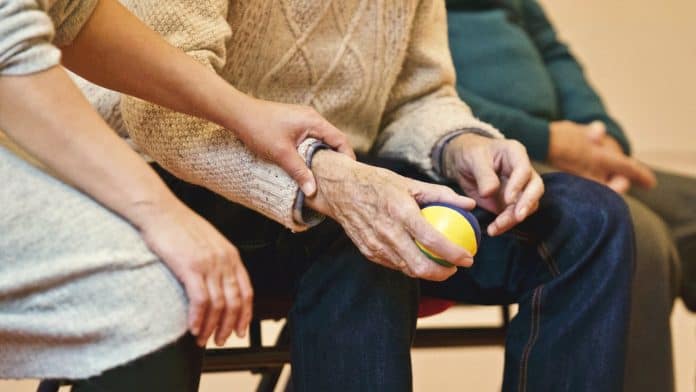By Sangita Verma, PT, DPT, MBA, GCS
Each year, millions of people aged 65 and older fall, according to the Centers for Disease Control and Prevention (CDC).
And 1 out of every 5 of those falls leads to injury, including sprains, strains, and broken bones.
In fact, the vast majority of hip fractures — more than 95% — are caused by falling, according to the CDC.
Penn Medicine Princeton Medical Center Princeton Rehabilitation offers comprehensive, individualized physical therapy services to help prevent falls and help you recover if you have experienced a fall.
A Variety of Risk Factors
While anyone can lose their footing and take a tumble, older adults are at greater risk for falling and getting injured for a variety of reasons, including:
- Decline in muscle mass. Aging often leads to a decrease in muscle strength and power.
- Decreased balance.
- Impaired vision. Age-related vision changes can hinder the ability to detect obstacles.
- Arthritis. Joint pain and stiffness can affect mobility.
- Use of medicines, such as tranquilizers, sedatives, or antidepressants.
- Foot pain or poor footwear.
- Home hazards or dangers such as broken or uneven steps, throw rugs or clutter that can be tripped over.
- Osteoporosis. Weakening of bones increases the likelihood of fractures.
Additionally, once someone experiences a fall, they are often afraid of falling again, which can lead to reduced physical activity, further contributing to muscle weakness and loss of balance.
Moreover, women are more likely to experience a fall than men.
According to the CDC most falls are caused by a combination of risk factors. The more risk factors a person has, the greater their chances of falling.
Preventing Falls
Though falls are common among adults, they are not a normal part of aging and can often be prevented. Here are steps you can take to prevent falls as you age:
- Exercise caution when walking over uneven or slippery areas. Take shorter steps, and make sure your weight is directly over your front leg. Go slow and use handrails when they’re available.
- Keep your arms free to maintain your balance. Don’t try to carry bags of groceries all at once and keep your phone in your pocket.
- Wear proper footwear. Choose low-heeled shoes and boots with non-skid soles.
- Warm up. If you’re going to be doing any outdoor activities — whether shoveling snow, gardening or simply playing with the grandkids — be sure to warm up first.
- Fall-proof your home. Remove tripping hazards, install grab bars in bathrooms and ensure adequate lighting. In winter, prioritize snow and ice removal from walkways, and clean up any wet floors immediately.
- Get your eyes checked. Regular eye exams can address any vision issues promptly.
- Stay active. Do exercises that strengthen your muscles and improve your balance, such as Tai Chi.
- Get screened for osteoporosis and get treated if necessary. Ask your doctor if you should be taking vitamin D supplements.
- Schedule regular health check-ups. Regular health checks-ups provide the opportunity to review your medications with your healthcare provider, identify potential risk factors for falling and discuss appropriate interventions, including physical therapy.
Physical Therapy Can Reduce Risk
If you are concerned about your risk for falling or have already experienced a fall, talk to your doctor. They may prescribe physical therapy to help reduce your risk. In addition, you have the option of seeking physical therapy directly.
Physical therapists at Princeton Rehabilitation have many tools to help individuals improve their balance and strength and regain their confidence.
This incudes state-of-the-art equipment for fall risk prevention and balance training that can help improve balance, increase agility, develop muscle tone and treat a wide variety of conditions. It also provides data to help monitor progress and optimize care.
In addition, physical therapists can teach you how to use assistive devices, such as canes and walkers, to help you get around safely, and can provide you with personalized exercises you can perform at home.
Therapists can also often perform a home safety inspection to identify and address fall hazards.
By being aware of the risks and taking precautions, you can prevent falls and can enjoy an active and healthy life as you age.
For more information about Princeton Rehabilitation or to find a physical therapist with Princeton Rehabilitation call (609) 853-7840 or visit www.princetonhcs.org.
Sangita Verma, PT, DPT, MBA, GCS holds a doctorate degree in physical therapy, is a geriatric certified specialist, and is the Director of Rehabilitation for Princeton Rehabilitation.


